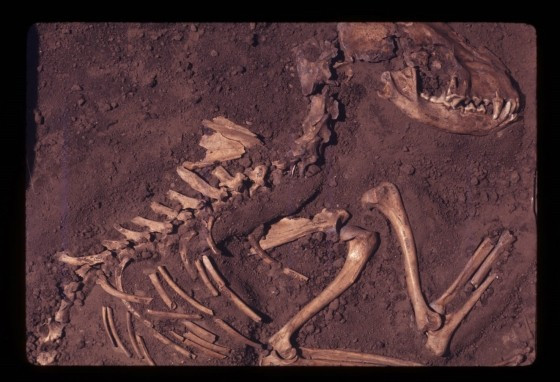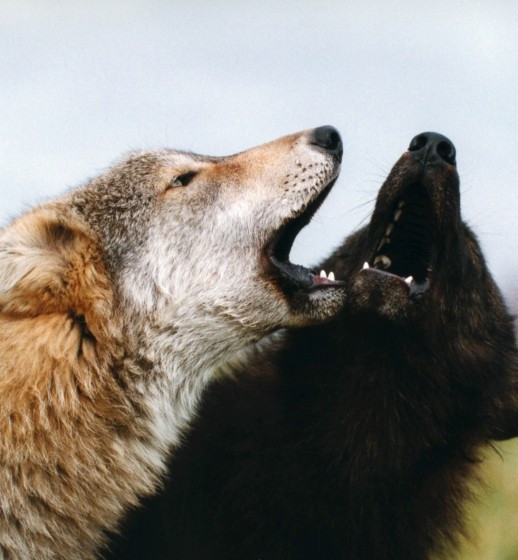Wolves Trained to be Pet Dogs 18,000 Years Ago

Hunter-gatherers in Europe were the first people to have dogs as pet, domesticating them around 18,000 years ago.
Researchers at the University of California Los Angeles (UCLA) found the oldest pet dogs lived in Europe and had gradually evolved from wolves.
Robert Wayne, senior author of the study published in the journal Science, said: "We found that instead of recent wolves being closest to domestic dogs, ancient European wolves were directly related to them.
"This brings the genetic record into agreement with the archaeological record. Europe is where the oldest dogs are found."
In May, the team analysed the genomes of three recent wolf breeds, two ancient dog breeds and the modern boxer dog.
"[We] found that none of those wolf populations seemed to be closest to domestic dogs," Wayne said.
"We thought one of them would be, because they represent wolves from the three possible centres of dog domestication, but none was. All the wolves formed their own group, and all the dogs formed another group."

Researchers believe that a breed of wolf that is now extinct were the ancestors of pet dogs, so they studied 10 ancient wolf-like animals and eight dog-like animals. They then compared the ancient DNA with that of modern dogs, wolves and coyotes and findings showed domestic dogs were from the same groups as ancient wolfs and dogs.
However, they also found domestic dogs did not match with wolves from anywhere else in the world other than Europe.
Wayne said the domestication of wolves would have happened before humans set up agricultural based communities: "The wolf is the first domesticated species and the only large carnivore humans ever domesticated. This always seemed odd to me. Other wild species were domesticated in association with the development of agriculture and then needed to exist in close proximity to humans.
"This would be a difficult position for a large, aggressive predator. But if domestication occurred in association with hunter-gatherers, one can imagine wolves first taking advantage of the carcasses that humans left behind - a natural role for any large carnivore -- and then over time moving more closely into the human niche through a co-evolutionary process."
Wayne said further research is needed to confirm their findings: "This is not the end-story in the debate about dog domestication, but I think it is a powerful argument opposing other hypotheses of origin."
© Copyright IBTimes 2025. All rights reserved.






















